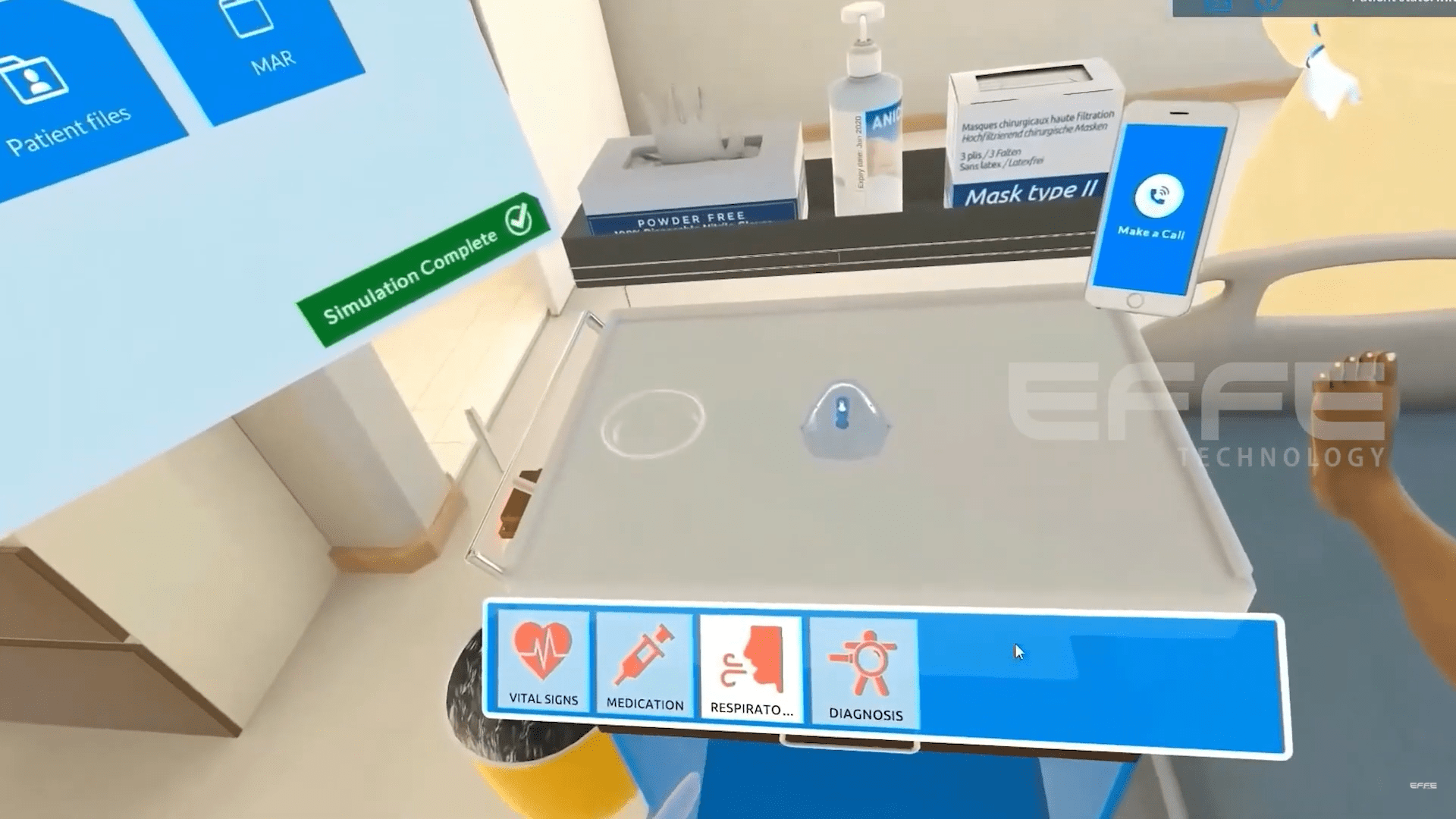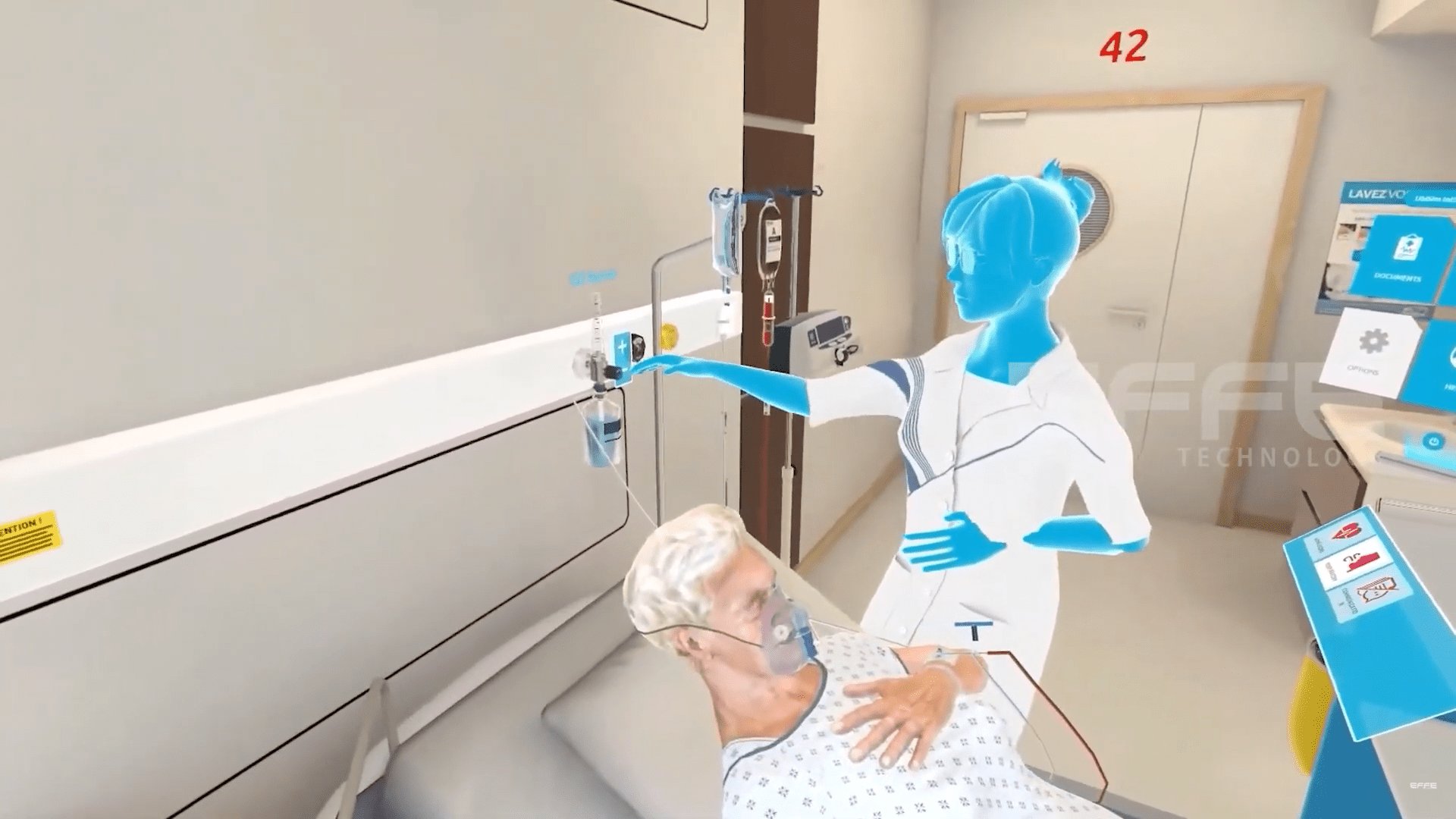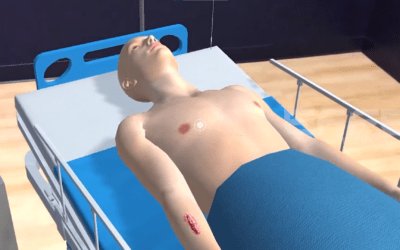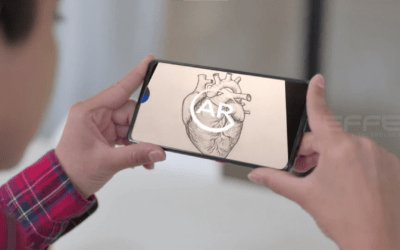Project Brief
EFFE Technology revolutionized medical training with an immersive Virtual Reality (VR) solution designed to enhance medical students’ and professionals’ learning experiences. This innovative VR Medical Training platform simulates surgical procedures and medical assessments, providing an interactive, risk-free environment for training, evaluation, and skill development across various medical disciplines.
Client Requirement
The client, a leading medical education institution, sought a comprehensive VR solution to elevate their training curriculum. They aimed to provide students with a hands-on learning experience while eliminating the constraints of traditional training, such as the need for physical cadavers, costly equipment, and real-world patient scenarios. The client required:
- A realistic 3D VR Medical Training simulation for surgical procedures.
• Interactive learning modules for medical students to practice diagnosis and treatment.
• A VR-based assessment system to evaluate students’ performance.
• Scalability and remote accessibility for a global audience.
Project Planning, Strategy, and Process
EFFE Technology approached this project with a systematic plan:
- Understanding User Needs:
Detailed discussions were held with medical educators, students, and surgeons to identify core requirements. The team mapped out essential features such as realistic anatomical models, interactive tools, and performance tracking. - 3D Model Development:
A dedicated team of 3D artists and medical consultants collaborated to design anatomically accurate human body models. The models included layers for skin, muscles, organs, and bones, ensuring a detailed representation of human anatomy. - VR Simulation Integration:
The development team integrated these models into an immersive VR Medical Training environment. Advanced features, such as haptic feedback, were incorporated to simulate the tactile feel of surgical tools and procedures. - Interactive Learning Modules:
The modules were designed with a focus on interactivity. Students could explore anatomy, perform surgeries, and practice diagnostic techniques. Real-time guidance and feedback were provided to enhance the learning curve. - Performance Assessment System:
A robust assessment system was built to track students’ progress. Metrics like precision, response time, and procedural success were recorded, enabling educators to evaluate and provide constructive feedback. - Testing and Deployment:
The platform underwent rigorous testing to ensure smooth performance. Post-testing, the VR Medical Training solution was deployed at the institution and made accessible remotely for online learners.

Deliverables and Client Benefits
Deliverables
The final deliverables included:
- A fully immersive VR platform equipped with detailed 3D human models.
- Real-time surgical simulation tools with interactive guidance.
- Customizable learning modules for different medical specializations.
- A centralized assessment dashboard for educators.
Client Benefits
- Enhanced Learning Outcomes
Students reported a deeper understanding of human anatomy and improved procedural skills thanks to the hands-on approach. - Cost and Resource Efficiency
By eliminating the need for cadavers and expensive training setups, the client saved significantly on resources while scaling the program globally. - Risk-Free Environment
Trainees could practice repeatedly without the fear of causing harm, allowing them to build confidence and precision. - Global Reach
Remote accessibility ensured that students worldwide could benefit from the platform, expanding the institution’s influence in medical education. Visit Our Partner Site
Conclusion
Virtual Reality in Medical Training | VR Learning Assessment | VR Medical Surgery | EFFE TECHNOLOGY




